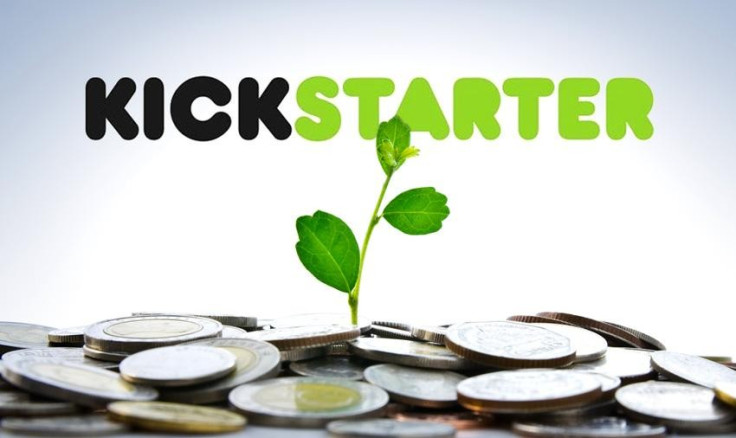Kickstarter founders turns down billion-dollar fortunes to create ethical Public Benefit Corporation

Crowd-funding website Kickstarter is flying the flag for the greater good by reincorporating itself as a Public Benefit Corporation (PBC), bucking the trend seen in many companies where chasing profits supersedes making a positive impact.
By becoming a PBC, Kickstarter will have to legally act and make executive decisions that will primarily serve to benefit the public and society rather than the bank accounts of owners and investors.
This move to a PBC goes against the grain of the recent wave of digital capitalism as Kickstarter could very easily have announced an IPO that would have generated billions for the shareholders as many startups, such as Uber, have done so. But this change is sending out a message of its commitment to support creativity and projects for all the right reasons.
Top five most funded Kickstarter campaigns:
1. Pebble Time: $20.3 (£13.2) million from 78,471 backers
This smartwatch comes with colour e-paper display, 10 days battery life and is water resistant.
2. Coolest Cooler: $13.2 (£8.6) million from 62,642 backers
Described as a 'portable party' this coolbox features a built-in blender, waterproof Bluetooth speaker, bottle opener and USB charger.
3. Pebble Smartwatch: $10.2 (£6.6) million from 68,929 backers
The first iteration of the popular Pebble smartwatch was a well-priced, versatile option that offered fitness, music and email notification as well as a heap of apps and fun customisation.
4. The World's Best Travel Jacket: $9.1 (£5.9) million from 44,949 backers
This humbly-titled product from Baubax comes with 15 features including a built-in neck pillow, drink pocket, eye mask, earphone holders and hand-warming pockets. Is the most funded clothing project in crowd-funding history.
5. Exploding Kittens: $8.7 (£5.6) million from 219,382 backers
Thankfully, this is a card game, not the real thing. The rather oddball game created by Elan Lee is essentially a Russian Roulette played with a deck of cards which will eliminate you from the game when you pull a kitten card. It might sound weird but its huge number of backers show that kittens sell.
Kickstarter announced its reincorporation on Sunday 20 September and is displaying the fact on its website with a full-page message and mission statement of its new altruistic direction. It explains:
"Companies that believe there are more important goals than maximizing shareholder value have been at odds with the expectation that for-profit companies must exist ultimately for profit above all."
A Benefit Corporation doesn't have to adhere to this business model and Kickstarter's motive behind the move is to protect its own business goals from the influence of its shareholders – something that did not get one dissenting vote from them.
Of course, this doesn't mean it won't be making profit – there'll be plenty of that as they still need to answer to its shareholders –it's just now obliged to use said profit in a positive, cultivating way. Kickstarter reportedly generated up to $10m (£6.5m) in the last three years.
So what will Kickstarter do with its profit?
Its company motto of "helping bring creative projects to life" is still the same. Only now it has legally defined goals. Its charter has this to say:
"We renew our long-standing commitment to arts and culture. We declare how we plan to conduct ourselves in situations that are often swayed by profit motives. And we newly commit to donate 5% of annual post-tax profits to arts education and organisations fighting inequality."
It's worth pointing out that becoming a Benefit Corporation doesn't prevent Kickstarter from selling up in the future – it can change its status and sell up whenever it wants. This change simply underlines its ethical intentions and hopes to influence other companies in a market where only .01% of American businesses are doing the same.
However, the co-founders of Kickstarter, Yancey Stickler and Perry Chen, told the New York Times they would never "sell or go public," as "that would push the company to make choices that we don't think are in the best interest of the company".
A Public Benefit Corporation sounds like a great idea but sadly you won't find any UK businesses operating under it as it's a legal act specifically created for the US. Only the NHS has been given a PBC status along, with an unofficial title given to the BBC. UK businesses can obviously act in ethical ways for the good but it won't be enforced.
© Copyright IBTimes 2025. All rights reserved.






















